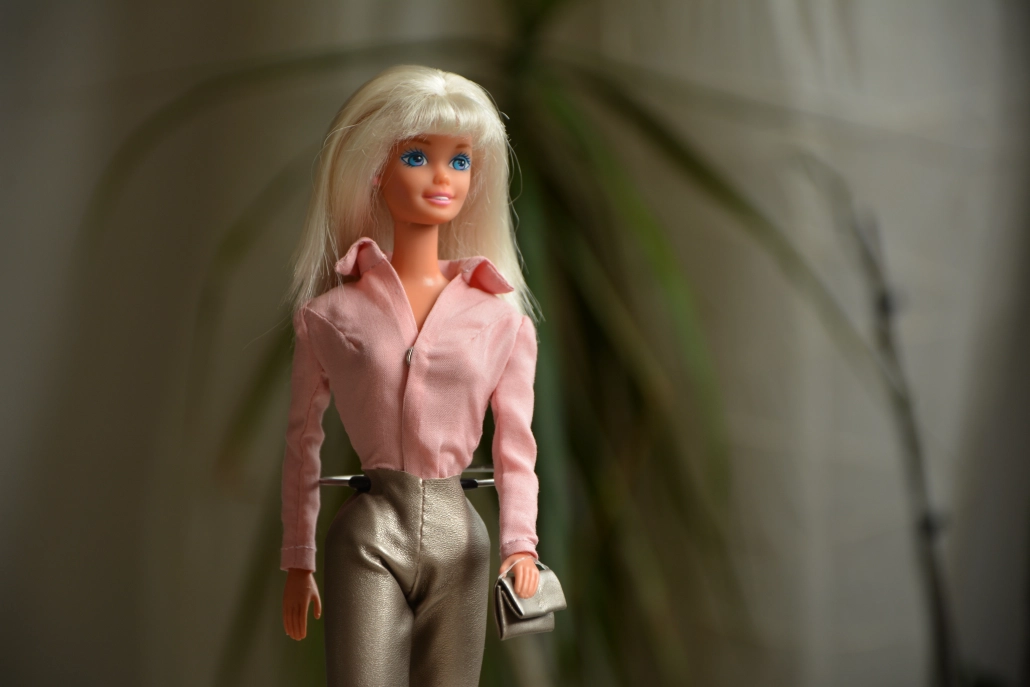COMIC RELIEF
Jo Koy’s writers deserve better
Following the year of “Barbie” (2023) and the Hollywood writers’ strike, the Golden Globes monologue was a poor joke.
Following the year of “Barbie” (2023) and the Hollywood writers’ strike, the Golden Globes monologue was a poor joke.


From clips of awkward celebrity reactions across all social media platforms to think pieces in every journalism outlet, Jo Koy’s Golden Globes monologue is undeniably the unavoidable pop culture moment of the week.
It’s not uncommon for award show hosts to give a subpar performance. Amy Poehler and Tina Fey, who shared the role for four years, are often considered the pinnacle of Globes hosts in recent history. Ricky Gervais’ stint as host received favorable praise. Gervais, whose newest work resembles that of a conservative news pundit obsessed with “woke” culture rather than that of an actual comedian, won the Globes’ first Best Performance in Stand-Up Comedy on Television award.
For the Globes last year, host Jerrod Carmichael completely strayed away from the classic roasting monologue employed by Poehler, Fey and Gervais. While Carmichael’s work was some of the best in recent history, no one watched it. The 2024 show received 50% more viewership than the previous year, as reported by the Associated Press.
Koy’s return to the roasting monologue failed. At its best, the jokes were tired, and at worst, they were misogynistic. Some of the worst moments happened during his section on “Barbie” (2023). In one “joke,” the 52-year-old man described the feminist movie using the word “boobies.”
“Barbie” explored the impossible expectations set upon women while also celebrating camaraderie among women. To see a woman-directed, women-led film receive praise from critics and viewers alike is a rare moment. Similarly, “Barbie” made it so the highest-grossing film of 2023 was the work of a woman. With $1.4 billion in the box office, it is the highest-grossing woman-directed film of all time.
Women directors are significantly underrepresented in the industry. The Annenberg Inclusion Initiative recently reported only 6% of the top 1,700 movies since 2007 were directed by women. For film fans, “Barbie” felt like maybe women directors would finally receive the large audiences they have long deserved.
In just a few icky “Barbie” bits, Koy reminded women we still aren’t in Barbie Land, and even if America Ferrera perfectly provided a “Feminism 101” course (as she described it to The New York Times), there are still men who can reduce the story to women’s bodies.
The audience was less willing to demean “Barbie,” leaving Koy stranded on the stage.
Some hosts may choose to soldier on through the rest of the monologue and hope the jokes are forgotten by the end. Although it is not uncommon to see a comic comment on a joke flopping to try and break the ice — sometimes it shows vulnerability and can bring the audience back to the comedian’s side. Comedians can achieve that success when they take responsibility for the flop, a sort of self-deprecating humanization for the person on stage.
In other cases, comedians go on the defensive, deflecting the awkwardness in any way they can — usually choosing to get mad at the audience. Koy, on the other hand, chose to blame the writers.
“Some I wrote, some other people wrote,” Koy said, diminishing the help of writers, who just concluded their 148-day strike — the second-longest strike in Writers Guild of America history.
“I got the gig 10 days ago,” he continued. “You want a perfect monologue? Yo, shut up. You’re kidding me, right? Slow down, I wrote some of these, and they are the ones you are laughing at.”
Ten days may be short, and he told PEOPLE he would like five months, but he still accepted the gig knowing the time frame.
As TikTok user @gabesco joked, “What does Jo Koy mean he only had 10 days to write his monologue? … Any student hearing this knows how ridiculous this is … 10 days before an assignment is due, usually I haven’t even started thinking about what I’m supposed to do.”
Comedians have off days all the time, and hosting an award show is known to be a difficult gig. The “Barbie” jokes were undeniably gross, but comedians are awarded for even more offensive content all the time (see Golden Globe-winner Gervais). Still, Koy chose to deflect the heat to the writers.
Maybe Koy truly did write all the hits, and the poor and sometimes offensive jokes came from the writers. However, it’s not as if Koy was onstage reading them for the first time. He was an active and willing participant throughout the process. And, ultimately, he was the one who delivered the jokes to the 1,000-something guests and 9.4 million viewers.
Plus, he was paid to do so. It is unknown how much Koy was paid to host, but considering Carmichael was paid $500,000 to host last year, Koy’s paycheck was likely extremely generous. For 10 days of work, he got paid maybe eight times as much as the average American will make this year.
Some of the most important industry players were in the room, and Koy chose to embarrass the writers to (try to) save himself.
“Barbie” signaled more respect for women in film and the Writers Guild win signaled more respect for writers, but Koy proved it can still be taken away.
Kimberly Aguirre is a junior writing about comedy. Her column, “Comic Relief,” runs every other Thursday. She is also an associate managing editor at the Daily Trojan.
We are the only independent newspaper here at USC, run at every level by students. That means we aren’t tied down by any other interests but those of readers like you: the students, faculty, staff and South Central residents that together make up the USC community.
Independence is a double-edged sword: We have a unique lens into the University’s actions and policies, and can hold powerful figures accountable when others cannot. But that also means our budget is severely limited. We’re already spread thin as we compensate the writers, photographers, artists, designers and editors whose incredible work you see in our daily paper; as we work to revamp and expand our digital presence, we now have additional staff making podcasts, videos, webpages, our first ever magazine and social media content, who are at risk of being unable to receive the support they deserve.
We are therefore indebted to readers like you, who, by supporting us, help keep our paper daily (we are the only remaining college paper on the West Coast that prints every single weekday), independent, free and widely accessible.
Please consider supporting us. Even $1 goes a long way in supporting our work; if you are able, you can also support us with monthly, or even annual, donations. Thank you.
This site uses cookies. By continuing to browse the site, you are agreeing to our use of cookies.
Accept settingsDo Not AcceptWe may request cookies to be set on your device. We use cookies to let us know when you visit our websites, how you interact with us, to enrich your user experience, and to customize your relationship with our website.
Click on the different category headings to find out more. You can also change some of your preferences. Note that blocking some types of cookies may impact your experience on our websites and the services we are able to offer.
These cookies are strictly necessary to provide you with services available through our website and to use some of its features.
Because these cookies are strictly necessary to deliver the website, refusing them will have impact how our site functions. You always can block or delete cookies by changing your browser settings and force blocking all cookies on this website. But this will always prompt you to accept/refuse cookies when revisiting our site.
We fully respect if you want to refuse cookies but to avoid asking you again and again kindly allow us to store a cookie for that. You are free to opt out any time or opt in for other cookies to get a better experience. If you refuse cookies we will remove all set cookies in our domain.
We provide you with a list of stored cookies on your computer in our domain so you can check what we stored. Due to security reasons we are not able to show or modify cookies from other domains. You can check these in your browser security settings.
These cookies collect information that is used either in aggregate form to help us understand how our website is being used or how effective our marketing campaigns are, or to help us customize our website and application for you in order to enhance your experience.
If you do not want that we track your visit to our site you can disable tracking in your browser here:
We also use different external services like Google Webfonts, Google Maps, and external Video providers. Since these providers may collect personal data like your IP address we allow you to block them here. Please be aware that this might heavily reduce the functionality and appearance of our site. Changes will take effect once you reload the page.
Google Webfont Settings:
Google Map Settings:
Google reCaptcha Settings:
Vimeo and Youtube video embeds:
The following cookies are also needed - You can choose if you want to allow them:
